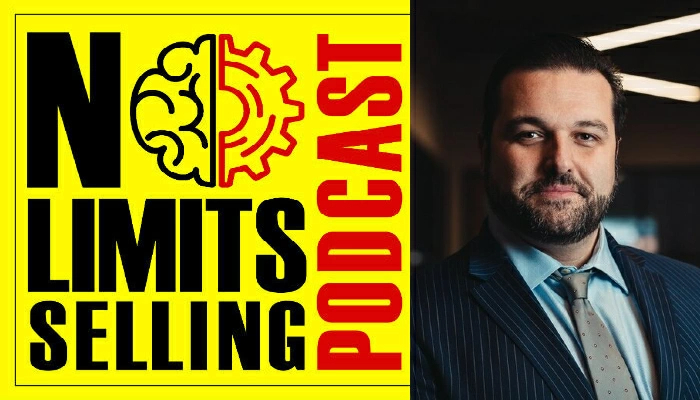How to Thrive in a Competitive Real Estate Market
On Episode 264 of The No Limits Selling Podcast, we have Yianni with us. He embarked on his journey in real estate after a long and successful career in global digital marketing where he worked with some of the world’s most prominent brands. Today, he will be sharing some tips on how to thrive in a competitive real estate market.
Yianni’s tip: Hire agents from diverse backgrounds and stay differentiated to find opportunities that aren’t publicly available and secure more off-market properties.
Guest Bio:
Yianni served as the Group Managing Director of social@Ogilvy and was based in Sydney, Australia where he managed a staff of 16 people working across advertising, digital marketing, and communications disciplines. Under his leadership, the social@ogilvy team was able to double revenues, reduce costs, and win several prestigious awards across Asia-Pacific. He maintains an active real estate portfolio that includes rental units in Adam Morgan, U Street, and Columbia Heights and is always excited to meet new people who share his energy for the dynamic Washington, D.C. property market.

Find Yianni Konstantopoulos: Website, LinkedIn
[EDITOR’S NOTE: This podcast is sponsored by No Limits Selling. It is a fun, fast-paced podcast that delivers hard-fought business advice that you can implement today to improve your sales and performance]
Interested In Our Real Estate Coaching Services? Explore Our Website: Link
Feeling Not Well Today? You Can Use Our Mindset Boosters App To amp Up Your Mood: Link
Find us on Social Media:
LinkedIn | Facebook community | Instagram
Like what do you listen to? Subscribe to our podcast!
Ready to become fearless? We can help you become fearless in 60 days so you accomplish more in your career Schedule A 15 min Call with Umar
Summary
Introduction and Background
The podcast begins with an introduction of Yianni Konstantopoulos, a recognized leader in the field of sales and marketing. He is also the author of the book "The Future of Sales: A Guide for the Modern Sales Professional". Yianni shares his background, starting from his early career in sales and marketing. He talks about his journey, the challenges he faced, and the valuable lessons he learned. His experiences have shaped his understanding of the sales industry and have influenced his approach to sales and marketing.
Sales Techniques and Strategies
In the next section, Yianni delves into various sales techniques and strategies. He emphasizes the importance of understanding the customer's needs and providing value. He believes that successful sales are not just about closing a deal, but about building relationships and trust with customers in a competitive real estate market. He discusses the importance of active listening and empathy in understanding customer needs. He also talks about the role of data and analytics in sales, explaining how these tools can provide valuable insights into customer behavior and preferences.
The Future of Sales
Yianni then shares his insights on the future of sales. He believes that technology will play a significant role in shaping the sales industry. He talks about the impact of artificial intelligence and machine learning on sales, explaining how these technologies can automate routine tasks and provide predictive insights. However, he also emphasizes that the human element will remain crucial in sales. He believes that while technology can enhance efficiency, in a competitive real estate market, the ability to build relationships and understand customer needs is something that cannot be replaced by machines.
Advice for Sales Professionals
Toward the end of the podcast, Yianni offers advice for sales professionals. He encourages them to continuously learn and adapt to changes in the industry. He emphasizes the importance of staying updated with the latest trends and technologies in sales. He also advises sales professionals to focus on developing their soft skills, such as communication and empathy, as these skills are essential in building relationships with customers.
Conclusion
The podcast concludes with Yianni expressing his optimism about the future of the sales industry. He believes that the industry is evolving rapidly and that this presents exciting opportunities for sales professionals in a competitive real estate market. He encourages listeners to embrace change and to continuously strive for improvement.
Faq
Who is Yianni Konstantopoulos?
What are some effective sales techniques and strategies according to Yianni Konstantopoulos?
What does Yianni Konstantopoulos say about the future of sales?
What advice does Yianni Konstantopoulos offer to sales professionals?
What is Yianni Konstantopoulos's outlook on the sales industry?
Don’t miss this opportunity to transform your real estate career with one-on-one coaching. As an experienced real estate coach, I, Umar Hameed, am dedicated to helping you unlock your full potential and achieve your real estate goals. To learn more about who am I and my clients ↓
If you’re ready to take the next step, book an appointment with me today and begin your journey toward success in the real estate industry.
